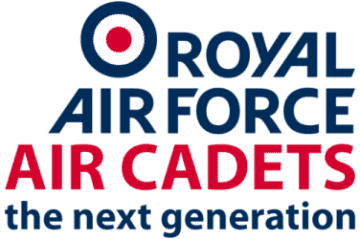A Royal Air Force Brize Norton based Voyager aircraft has lived up to its designation as a Multi-Role Tanker Transport aircraft during Exercise Mobility Guardian 23 in the western Pacific.
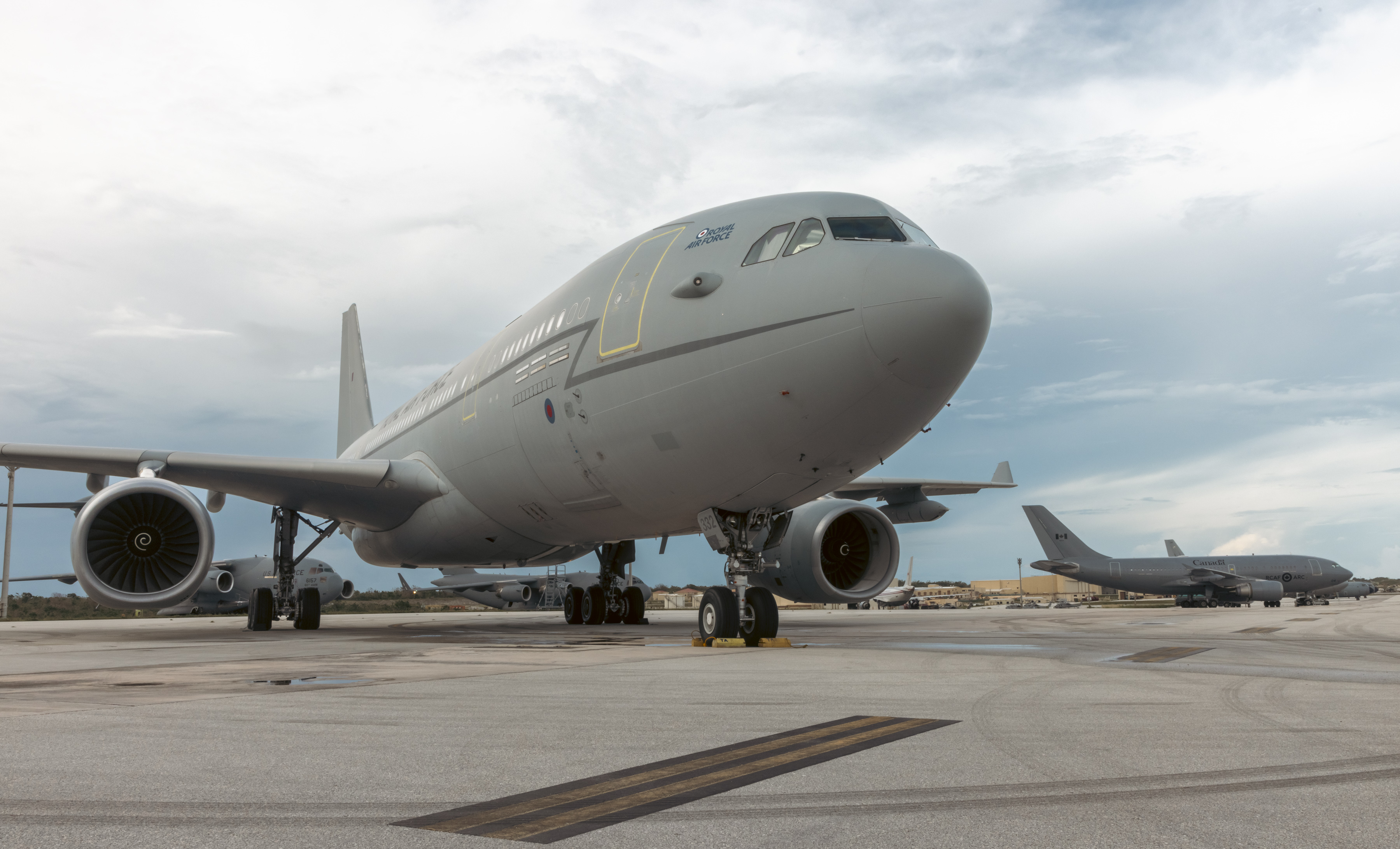
The aircraft operated by three crews from 10 and 101 Squadron initially deployed to Eielson Airbase in Alaska with a passenger compliment of 72. On arrival at Eielson, the passengers disembarked to allow more fuel to be taken on board and maximise Voyager’s capabilities as a tanker.
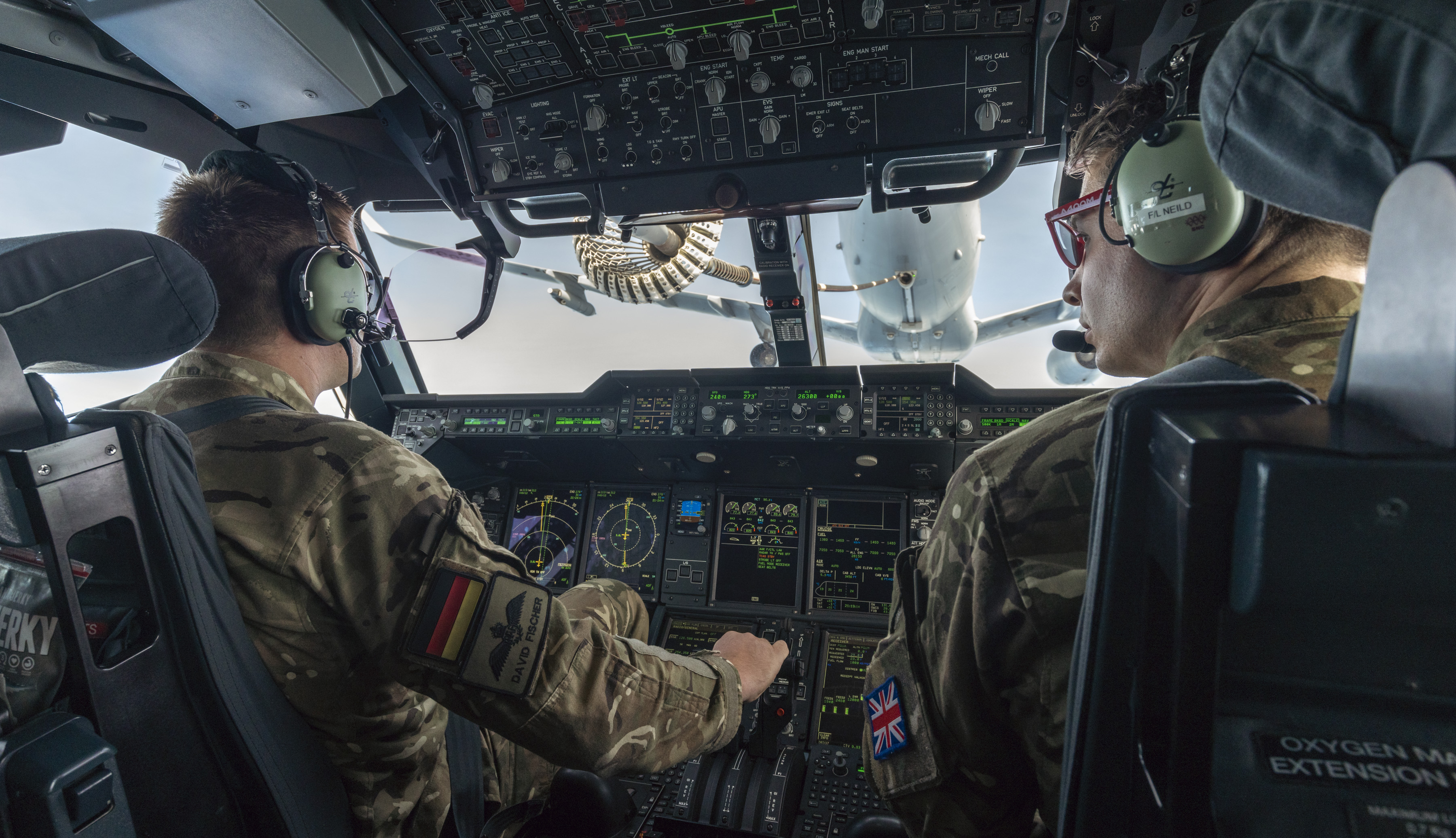
The Voyager now with as much fuel as possible, that took it to its maximum take-off weight, then rendezvoused with an RAF Brize Norton based A400M Atlas, over northern Alaska that was flying non-stop to Guam to also take part in the exercise. After fuel transfer the Voyager then climbed to allow a flight at maximum fuel efficiency, before again rendezvousing with the Atlas over the Aleutian Islands in the Pacific, to transfer more fuel to allow the Atlas to complete its flight from the UK to Gaum.
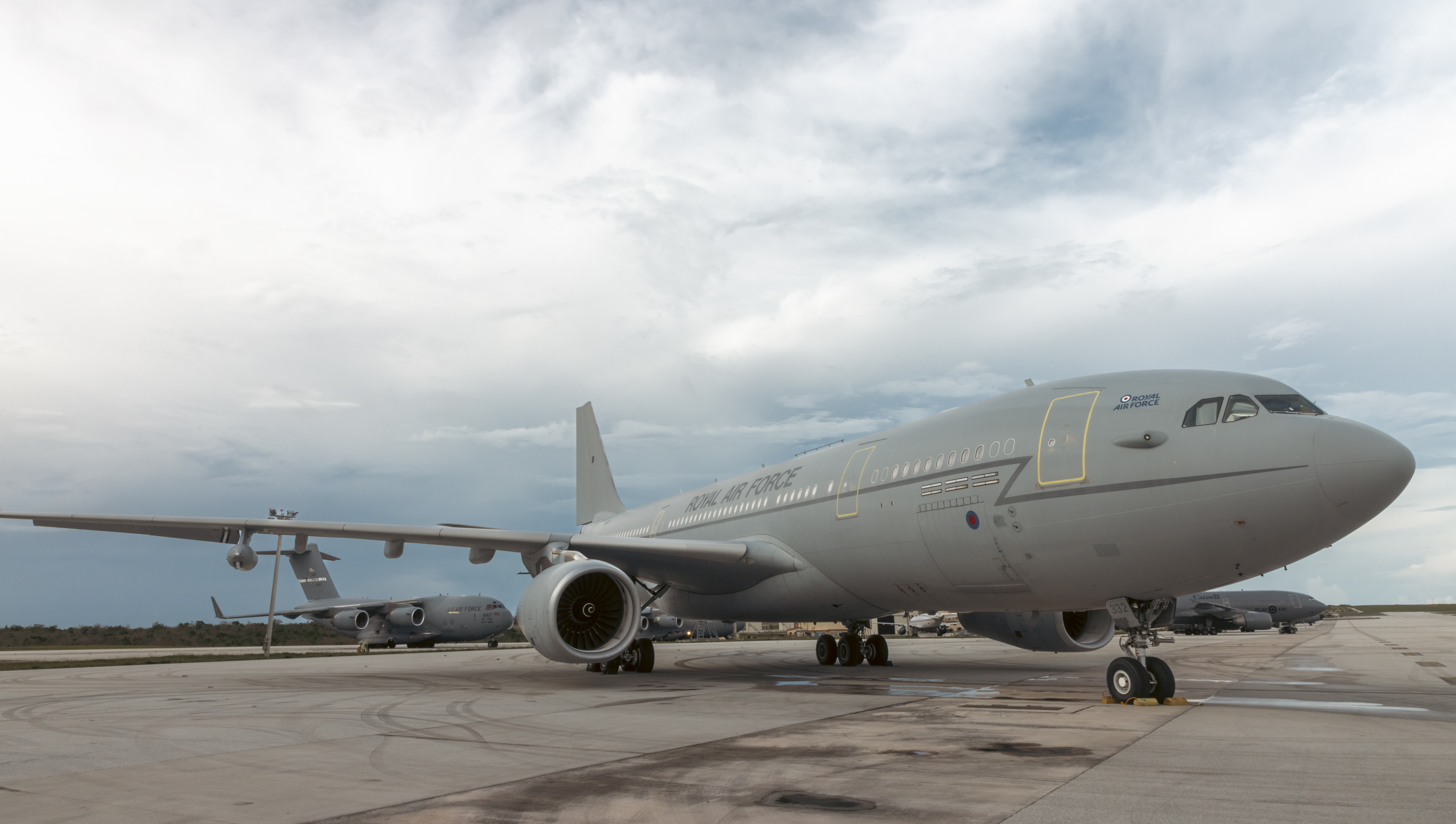
The Voyager then returned to Eielson to collect the passengers again before carrying on to Guam to join the exercise. The Voyager had therefore carried out two of its principal roles, namely strategic long-range Air-to-Air Refuelling and passenger transportation.
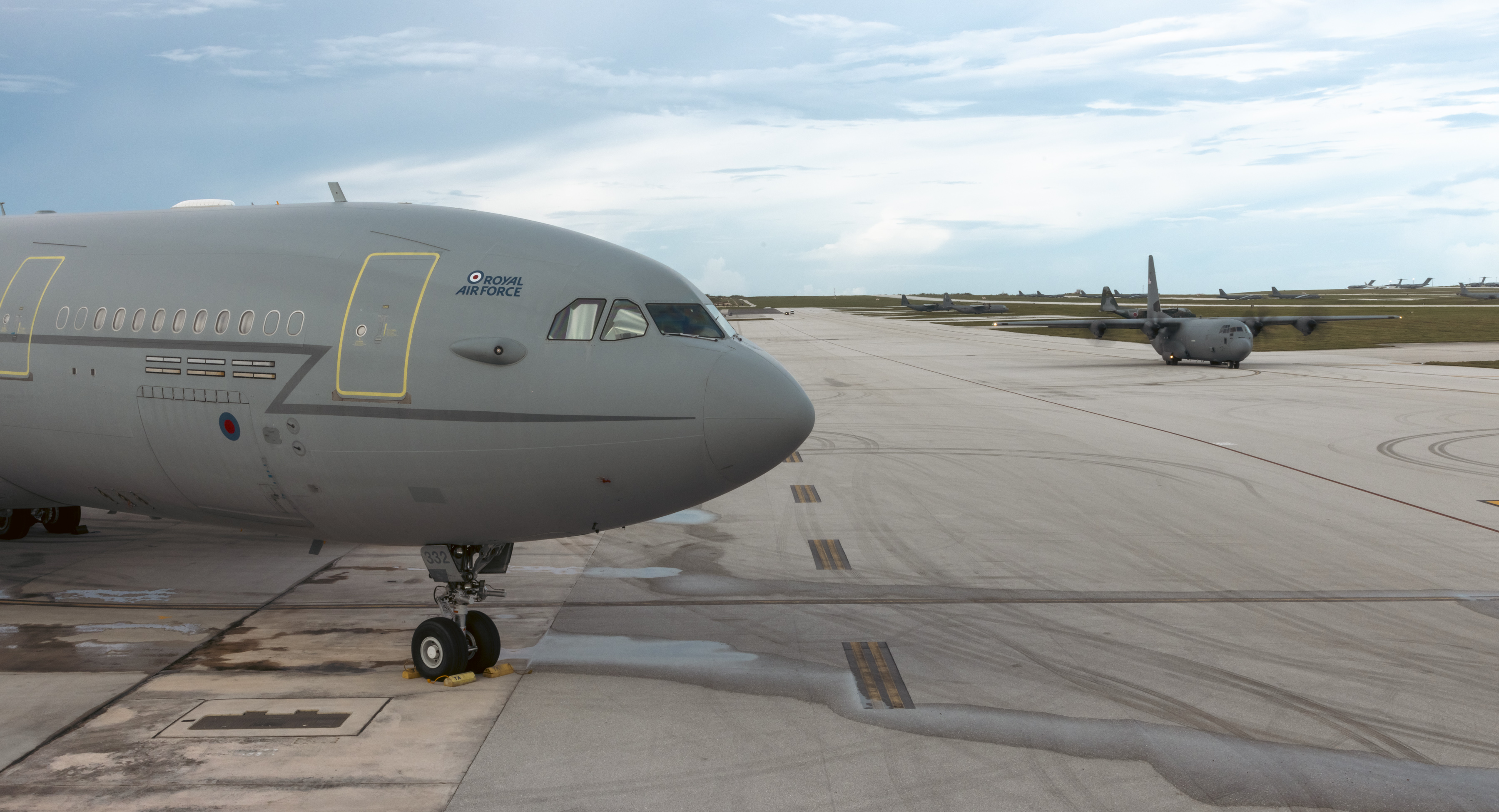
On arrival at Anderson Air Force Base, The Voyager was quickly deployed on its first exercise sortie, a tactical Air-to-Air Refuelling task, where the RAF aircraft fuelled US Navy F/A-18’s, EA-18’s, US Marine Corps F-35B’s and French Air and Space Force Rafales as part of a concurrent exercise that is also running alongside the US Air Mobility Command run Ex Mobility Guardian.
"This is an extremely important exercise for the Voyager Force as it is rare for us to be able to exercise the many roles the aircraft can carry out due to the high operational tempo of the Force. The training benefit to the Voyager Force personnel deployed on the exercise is therefore vital."
Squadron Leader Mike Willers
RAF Voyager detachment commander on the exercise
During the first week of the exercise the Voyager has been integrated into a fleet of tanking aircraft from the USAF, French Air and Space Force and the Royal Canadian Air Force to conduct fast jet Air-to-Air Refuelling over the western Pacific. These sorties support various exercises that test all participants in scenarios that are designed to overcome the ‘The Tyranny of Distance’.
For the RAF Voyager crews this means extended flights at significant distances from land masses in a remote location to conduct tanking operations and the opportunity to work with aircraft from partner nations.
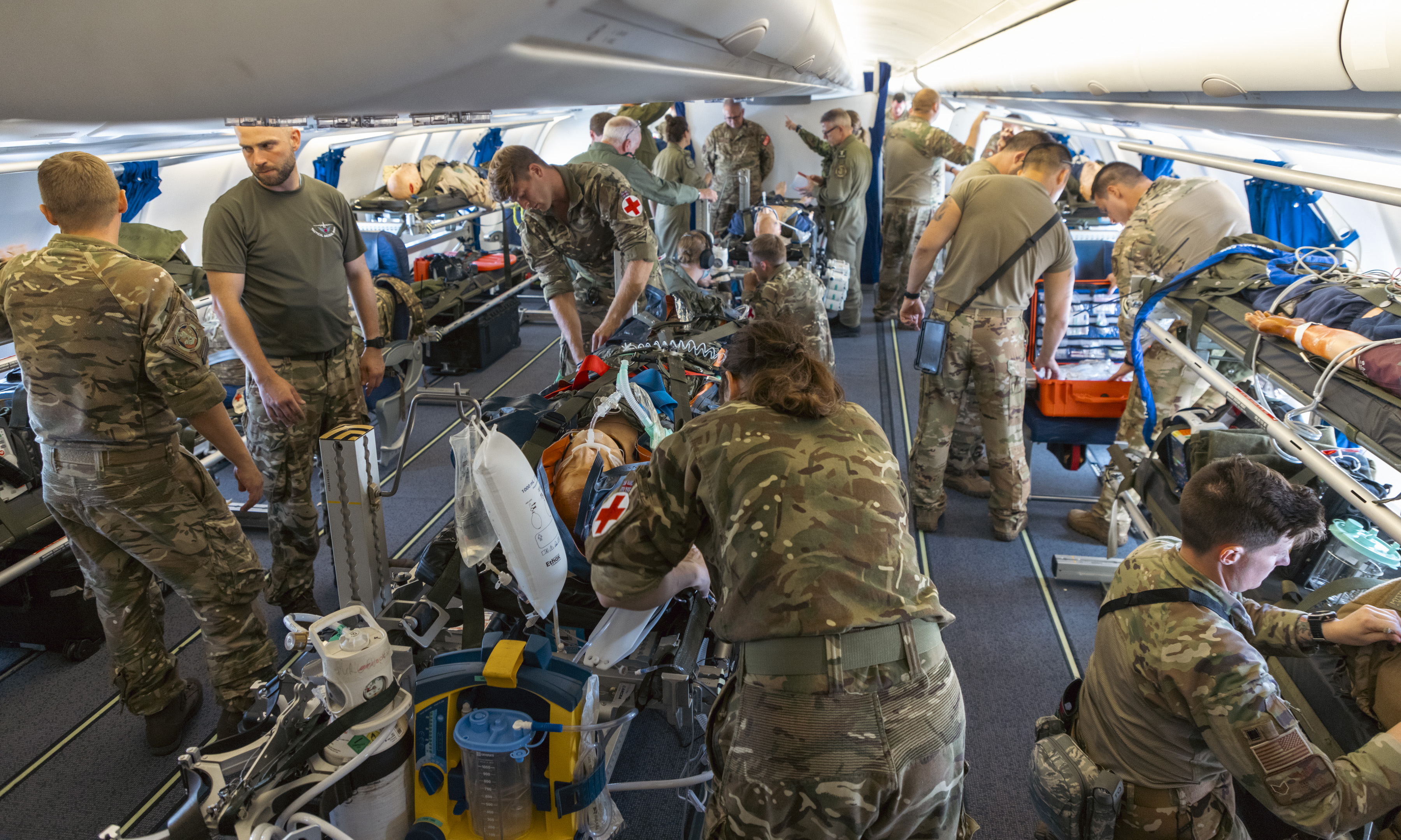
In addition to passenger carrying and conducting Air-to-Air Refuelling, the Voyager has been fitted to carry out Medical Evacuation sorties, another of the roles the aircraft is designed to do. Prior to departure from RAF Brize Norton onto the exercise, part of the passenger compartment was fitted to carry out this role on the exercise. This included the first fit of two high dependency units.
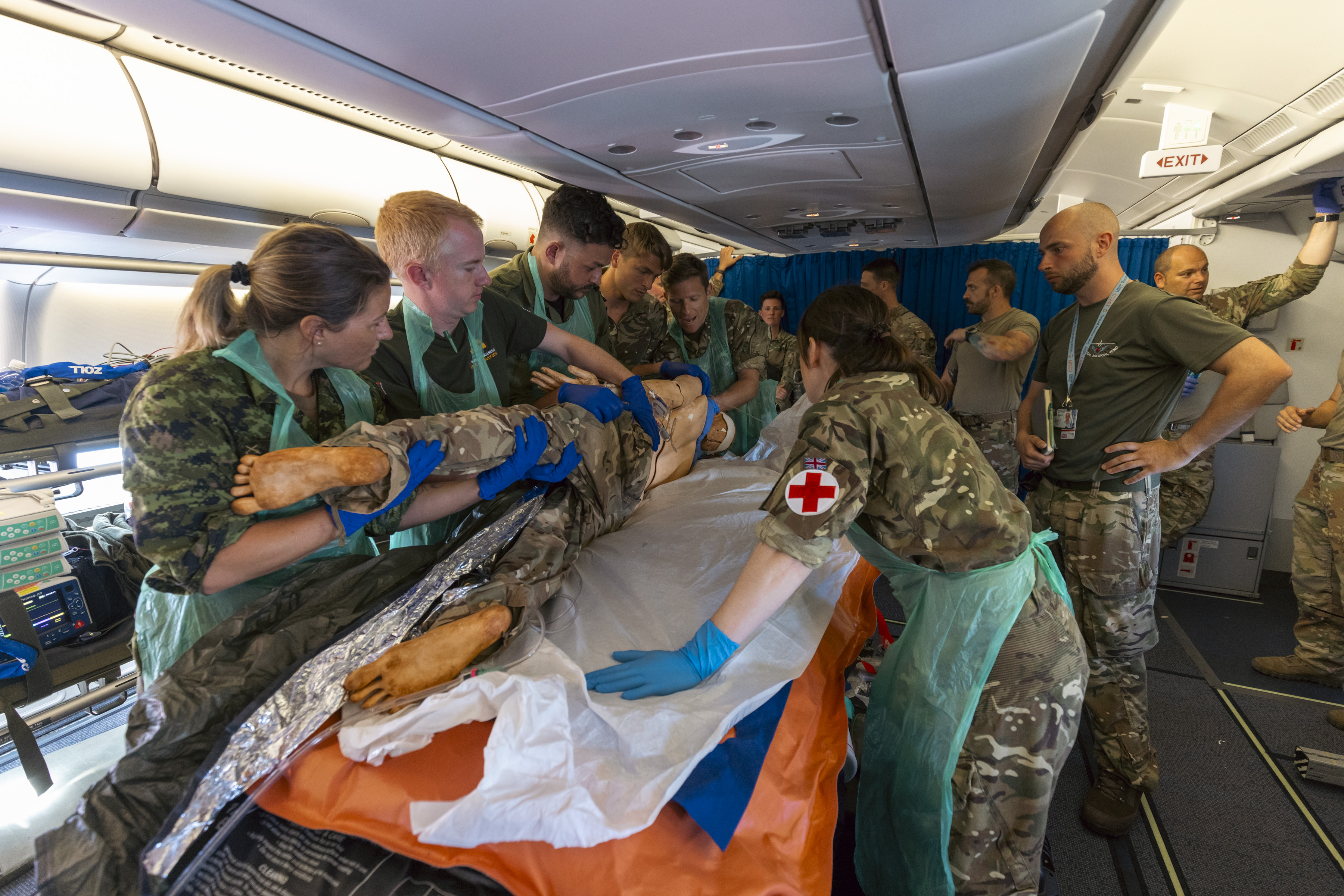
For the second week of the exercise the Voyager has deployed to Japan to conduct simulated Strategic Aero Medical Evacuation drills in a Humanitarian Assistance Disaster Response scenario. For these exercise serials RAF personnel from the Tactical Medical Wing are being joined by medical personnel from Canada, New Zealand, Japan and the United States Air Force to carry out medical drills on board the aircraft.
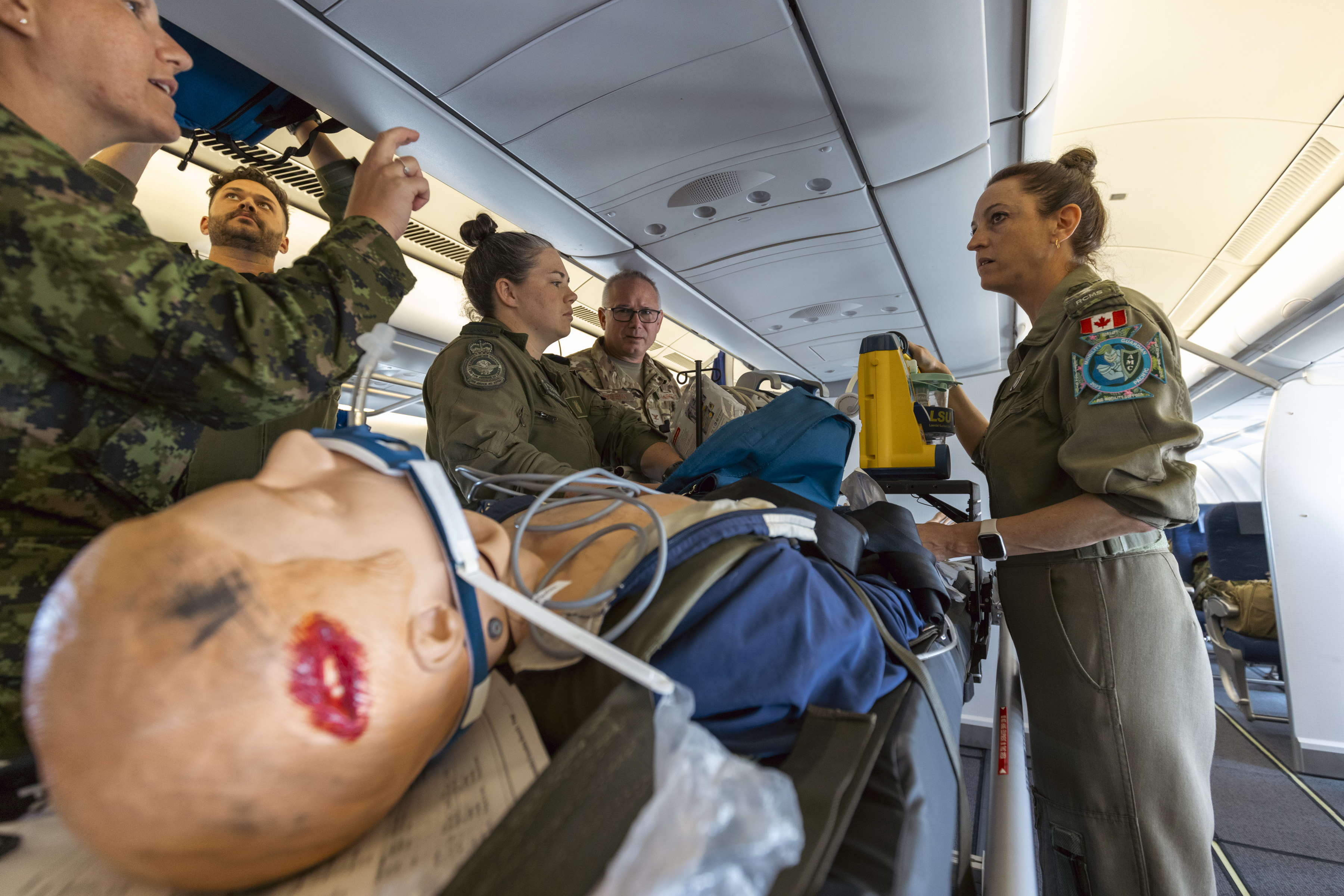
During these serials the Tac Med Wing personnel have been exercised in maintaining the simulated casualties’ condition, some of which occupied stretchers and two patients being maintained at the high dependence stations the aircraft had been equipped with.
The two week exercise concludes on the 21 July and the RAF detachment will return to the UK via Alaska.
